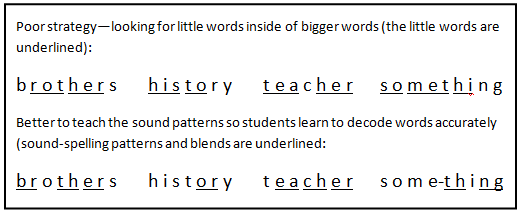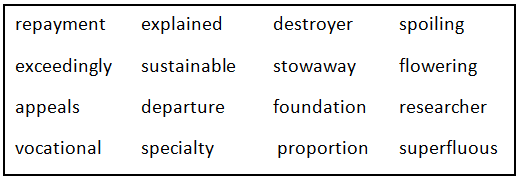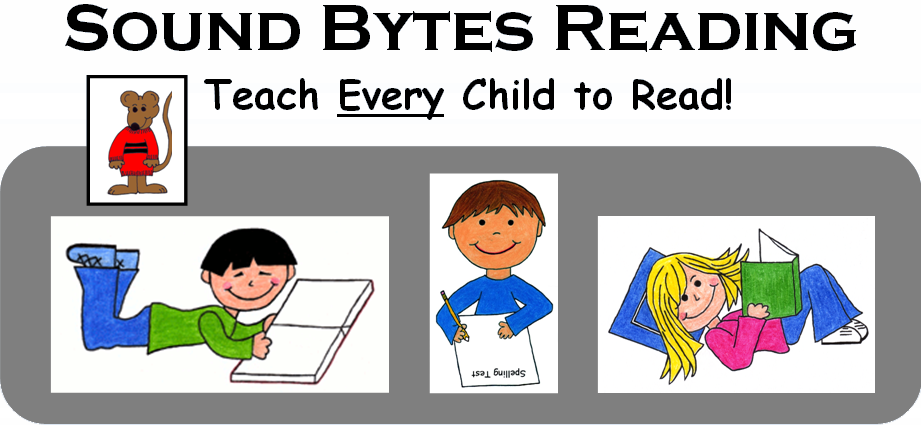Diagnosing Children with Reading Problems – Part 5
In the past four blogs in this series, I have shown you how to diagnose and remediate reading difficulties for your struggling readers in six areas. This week I will discuss the final step which often affects older struggling readers.

Previously, we covered how to teach skills to struggling readers who may be having difficulty in these areas:
1. Does your child know the consonant sounds?
2. Does your child know the vowel sounds?
3. Does your child decode words or sight read?
4. Can your student read words with blends?
5. Can your student read long vowel words?
6. Does your child have difficulty reading digraphs?
If your child can quickly and easily read all of the types of words discussed in the previous four blogs in this series without assistance, you are ready to go on to the next step.
7. Does your child have difficulty reading longer words or multi-syllable words?
There are two parts to this step. The first step, reading compound words, is quite easy to remediate. Compound words look long, but they are really just two shorter words that are connected to make a longer word. Can your child read these compound words?

If your child cannot easily read compound words, cover the second half of the word and ask him to read the first part. Then uncover the second part of the compound word and ask him/her to read the second part. Next, show your child how to combine the two words into one longer word.
Some children have been taught to look for little words within big words that are not compound words—but this strategy does not work well for many words as illustrated in the example below.

If your student was able to read compound words without difficulty, ask him/her to try reading this list of longer words that contain some prefixes and suffixes.

Older struggling readers are often sight reading and because they have memorized so many words, it is hard to determine where their reading difficulty begins. When these students get to the upper elementary grades or into middle and high school, they constantly need to learn many new words. They cannot keep up if they do not have the skills to decode new words on their own. Many students who struggle with reading longer words have not learned all of the decoding skills that have been previously discussed.
Spelling is also difficult for these students. As with younger students, they need to know the vowel and consonant sounds, they must be able to sound out words with short and long vowels and with blends, and they need to recognize the many letter-sound combinations within words.
Older students who read well at all of the other levels, but begin to struggle at this level of reading should be taught prefixes and suffixes and some rules that will help them to break larger words down into syllables so that they are able to sound them out more easily.
There is too much material to cover on this last topic to give specifics on remediation in one blog post, as I have mentioned. This level of reading, which includes instruction on prefixes and suffixes and breaking words into syllables, is not covered in the Sound Bytes Reading program. Use a program such as Megawords to remediate students who need specific instruction at this advanced level of reading.
